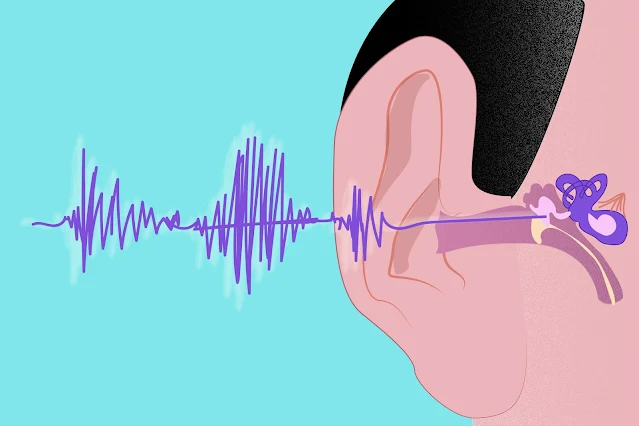Hearing is an essential sense as well as all other senses as they help to live your life fully by enjoying each moment. When you hear the sound of the sea, the wind against the grass, and the singing of birds, you can sit back and enjoy the calm and relaxing environment where everything is peaceful.
You cannot always prevent hearing loss; it's sometimes a natural part of growing older. Two common reasons behind hearing loss are age and noise. It’s not possible to prevent all types of hearing loss, however, you can take some precautions to reduce the risk of noise-induced and age-related hearing loss. And we are here to help you implement 8 healthy habits in your life to avoid hearing damage.
1. Pay Attention to Your Blood Pressure
The tiny hair-like cells in your inner ear are highly sensitive to changes in blood flow. Damage to these cells causes hearing loss. The better your general health, the greater your chances of preventing hearing loss or preserving your current hearing. Heart problems and high blood pressure can cause harm to the sensitive mechanisms in your ear that allow you to hear. So, you need to visit a doctor frequently to manage your blood pressure.
2. Stay Away From Loud Noises
Sometimes, when you go to places where the noise is too loud, you don’t pay extra attention to it as in most cases you don’t think that it can be harmful to your hearing. But, how can you understand that it’s too loud?
●
When it’s so noisy that you have to shout to communicate
with your friends.
●
You don’t hear well those who are only 3 feet away from
you.
●
Your hearing is muffled after you leave that noisy area.
● Your ears are ringing or there is a sudden pain.
So, the first method to prevent a noise-induced hearing loss that can cause permanent damage to your hearing is to avoid loud noise, whenever you can.
3. Wear Noise Protection
Wear hearing protection, such as earplugs and earmuffs, if you'll be exposed to loud noises. These protective measures will not only help you preserve your hearing but also will prevent ringing in your ears. If you work in a noisy environment where loud music is playing in the background, bring your noise protection. Here are some other ways you can protect your hearing:
●
When you are in noisy places, such as nightclubs, you need
to walk away from sources of noise, like
speakers.
●
After being exposed to a lot of loud noise, try to take a
15-minute break from it.
●
Your hearing needs to recover for about 18 hours after a
loud noise.
● If your work requires you to be around loud noises, you need to ask your human resources department to provide you with noise protection tools and ensure you are not exposed to loud voices for long.
One of the most serious threats to your hearing is listening to loud music through headphones:
●
Use noise-cancelling headphones.
●
Even lowering the loudness by a few decibels will
significantly reduce your chance of hearing loss.
●
Increase the volume only to the point where you can hear
your music clearly, but not any higher.
●
Some devices show you a warning when the music is very loud.
So don’t exceed 60% of maximum volume when listening to music.
● Lower the volume on your TV.
4. Stop Smoking
Tobacco use has also been linked to a higher risk of hearing loss. So if you're a smoker, that's yet another reason to give up. If you don't smoke, stay away from secondhand smoke.
5. Exercise and Manage Stress
Exercising boosts blood flow, which is beneficial to both your
body and your ears in a variety of ways. And, because prolonged high levels of
stress are bad for your hearing, do everything you can to keep stress at bay.
6. Consider Earwax Removal
Wax buildup in the ears can cause the sound to be muffled. However, don't clean them out with a cotton swab because it can push wax deeper in. Instead, soften the wax with an at-home watering kit and gently wash it away.
7. Test your Hearing
Hearing loss should be detected as soon as possible so that action can be taken. Consider getting regular hearing checks once a year if you are frequently around loud sounds. If you already have some hearing loss, staying away from loud noises will help you avoid more damage. Consider getting a hearing aid if your problem is serious enough. Signs of hearing loss can include:
●
When you keep turning the TV volume up to hear better.
●
When you constantly ask your friend to repeat the sentence
to hear what they said.
● When you don’t hear sounds, like a phone call, ringing, etc.
8. Keep Your Ears Dry
If you're a swimmer, you may be putting your ears at risk without realizing it. When water becomes stuck in your ear canal, it creates the ideal environment for bacteria to thrive. The latter can inhibit and spread infections inside the ear canal when there is too much moisture. Your ears may get hurt or itchy as a result of this. So, make sure to dry your ears.
These were some of the common ways to prevent hearing loss and preserve your current hearing. Follow these steps and stay healthy!










0 Comments